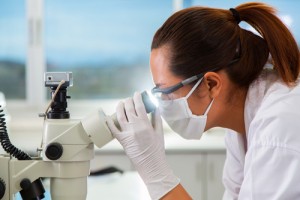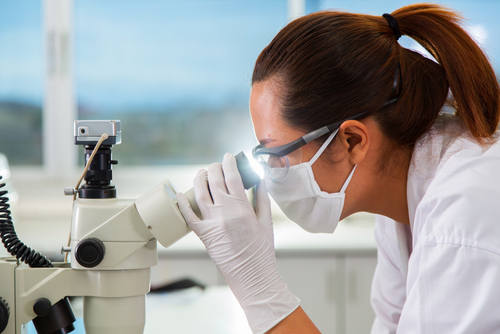 A new drug candidate to treat challenging cases of prostate cancer, galeterone (VN/124-1), has provided strong preliminary results in clinical trials, leading the U.S. Food and Drug Administration (FDA) to put it on a fast track for approval.
A new drug candidate to treat challenging cases of prostate cancer, galeterone (VN/124-1), has provided strong preliminary results in clinical trials, leading the U.S. Food and Drug Administration (FDA) to put it on a fast track for approval.
The compound was developed 10 years ago in the laboratories of the University of Maryland School of Medicine and will now enter a Phase III clinical trial in hospitals and clinics across the U.S. and Canada.
“I can think of maybe one other drug in the 30 years I’ve been doing oncology that showed these kind of results. This is an incredibly promising start for this medicine,” Dr. Kevin J. Cullen, director of the University of Maryland’s Marlene and Stewart Greenebaum Cancer Center, said in a Baltimore Sun interview.
The compound began as collaboration between two Maryland University researchers, Angela M. H. Brodie and Vincent C.O. Njar, as a drug to block production of estrogen in breast cancer. However, Dr. Brodie hypothesized whether the strategy used for estrogen could also be applied towards androgens, testosterone, and dihydrotestosterone, which fuel prostate cancer.
One of the most common treatments for severe prostate cancer is drug-induced castration, a procedure that shuts down androgen production from the testicles. However, Dr. Njar and Dr. Brodie were looking for a way to fight prostate cancer that continued after castration.
Galeterone blocks the interaction between androgen and its receptor on prostate cells, damaging the receptor and impeding future hormone signaling.
These early investigational results were published in 2005 on the Journal of Medicinal Chemistry, showing that the compound was a potent inhibitor of human prostate tumor growth and significantly more effective than castration.
Some years later, Tokai Pharmaceuticals, a company located in Cambridge, Massachusetts, named and licensed galeterone and started preforming clinical trials in 2009.
So far, a total of 200 patients have already enrolled in the trial, with 24 out of the 49 patients from the first phase showing a 30% reduction in prostate specific antigen (PSA) and 11 showing a 50% cut. In the second phase, 51 patients also showed significant PSA reductions, with 82% experiencing reductions of about a third. Furthermore, galeterone caused none of the adverse effects associated with chemotherapy, including nausea and hair loss.
In the third phase of the trial, researchers want to compare galeterone to existing treatments, a process that could take more than a year. However, the FDA fast track approval could help to reduce the time necessary to bring this drug into the market.

